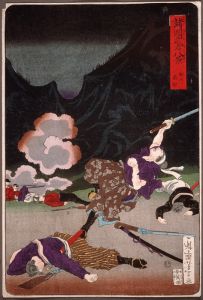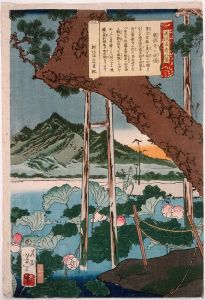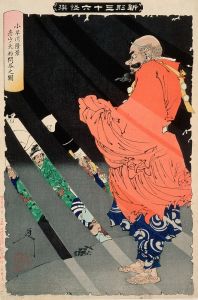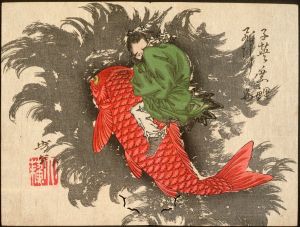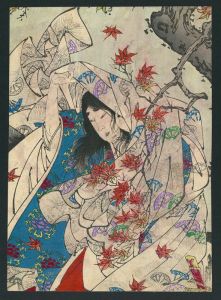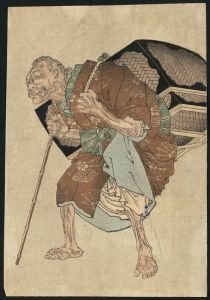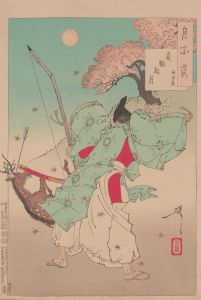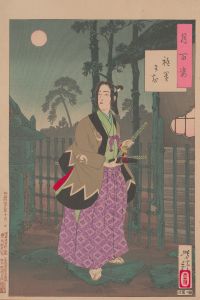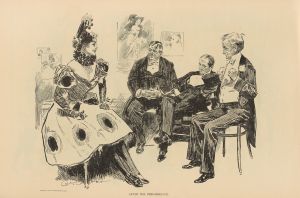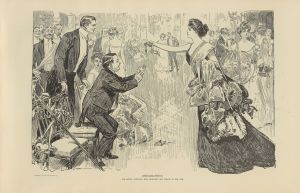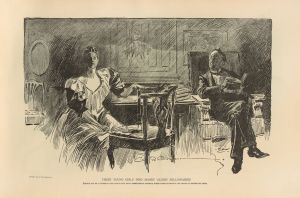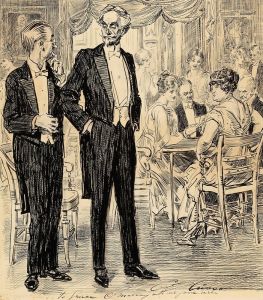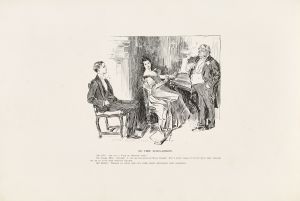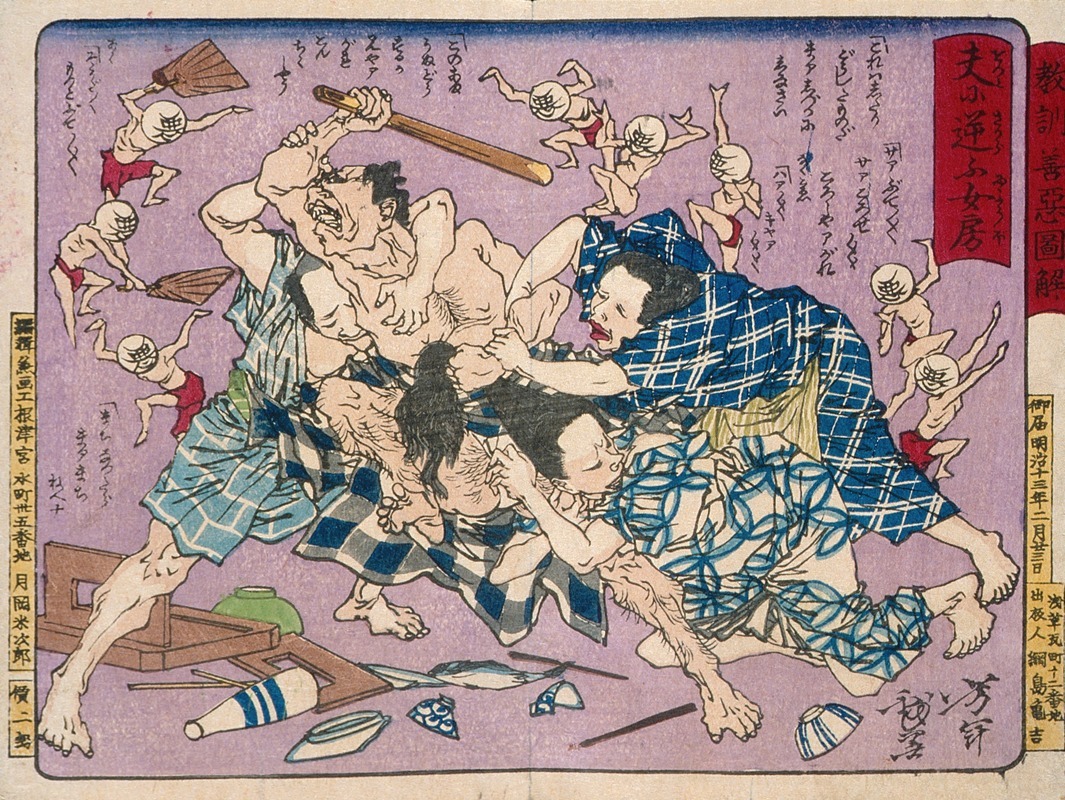
Disobedient Wife and others from Moral Lessons of Good and Evil
A hand-painted replica of Tsukioka Yoshitoshi’s masterpiece Disobedient Wife and others from Moral Lessons of Good and Evil, meticulously crafted by professional artists to capture the true essence of the original. Each piece is created with museum-quality canvas and rare mineral pigments, carefully painted by experienced artists with delicate brushstrokes and rich, layered colors to perfectly recreate the texture of the original artwork. Unlike machine-printed reproductions, this hand-painted version brings the painting to life, infused with the artist’s emotions and skill in every stroke. Whether for personal collection or home decoration, it instantly elevates the artistic atmosphere of any space.
Tsukioka Yoshitoshi (1839-1892) was a prominent Japanese artist known for his woodblock prints and paintings. He is often regarded as the last great master of the ukiyo-e genre of woodblock printing and painting. One of his notable works is "Disobedient Wife and others from Moral Lessons of Good and Evil," which is part of a series that explores themes of morality through vivid and often dramatic imagery.
Yoshitoshi's career spanned a period of significant social and political change in Japan, transitioning from the Edo period to the Meiji era. This was a time when Japan was opening up to Western influences and modernizing rapidly. Despite these changes, Yoshitoshi remained dedicated to traditional Japanese art forms, though he also incorporated new techniques and perspectives into his work.
"Disobedient Wife and others from Moral Lessons of Good and Evil" is a woodblock print that reflects Yoshitoshi's interest in the complexities of human behavior and morality. The series to which this print belongs, "Moral Lessons of Good and Evil" (Zenaku Sanjūniso), was created in 1880. It consists of 24 prints, each depicting a different moral lesson through the actions and consequences faced by its characters.
In "Disobedient Wife," Yoshitoshi portrays a scene that highlights the consequences of defying societal norms and expectations. The print features a woman who has presumably acted against the expectations of her role as a wife. The exact details of her disobedience are not specified in the title, but the visual elements of the print convey a sense of tension and drama. Yoshitoshi's use of color, composition, and expression effectively communicates the emotional weight of the scene.
Yoshitoshi's work is characterized by its dynamic compositions and the expressive quality of his figures. He was known for his ability to capture intense emotions and dramatic moments, often drawing on historical and literary sources for inspiration. His prints frequently explore themes of heroism, tragedy, and the supernatural, reflecting both the cultural heritage of Japan and the artist's personal experiences and observations.
The "Moral Lessons of Good and Evil" series is significant not only for its artistic quality but also for its reflection of the moral and ethical concerns of the time. Through these prints, Yoshitoshi engages with questions about the nature of good and evil, the consequences of one's actions, and the societal values that shape behavior. His work provides insight into the cultural and moral landscape of Meiji-era Japan, making it a valuable resource for understanding the period.
Tsukioka Yoshitoshi's legacy continues to be celebrated for his contributions to the art of woodblock printing and his ability to convey complex human emotions and stories through his work. "Disobedient Wife and others from Moral Lessons of Good and Evil" remains an important example of his skill and artistic vision, offering a window into the moral and cultural fabric of his time.






